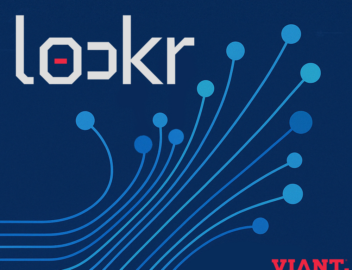

Thank you!
Just one more thing before you go...

With lockr’s New Tool, Publishers Can Test Multiple Alt Identity Solutions At Once
By Allison Schiff – AdExchanger
It takes a publisher around six weeks on average to test and deploy a new identity solution, not to mention the maintenance they have to do over time.
It can also take multiple sprints simply to update a current integration, which isn’t necessarily going to unlock more revenue and yet has to be prioritized because a faulty integration could mess with a publisher’s ability to monetize.
Now multiply that by dozens of tests, integrations and updates.
No wonder publishers are stressed out.
There’s “a slew of identity solutions on the market and no one knows who’s going to win and what’s going to generate revenue,” said Andrew Kraft, former COO of The Arena Group, publisher of Men’s Journal, Parade and the beleaguered Sports Illustrated.
“And so publishers are just trying to integrate all of them,” said Kraft, who left Arena in December, “even those with very little potentiality, because, at this point, every data signal matters.”
Taking aim
Inbox management and email verification startup lockr has heard a similar tale of woe from the publishers testing its technology.
Although lockr’s previous pitch to publishers was resonating – APIs to help authenticate real emails and remove machine-generated ones from first-party data sets – media owners said they had more immediate fish to fry.
“We were telling publishers, ‘We have a solution to a problem you will face,’” said Keith Petri, CEO and founder of lockr. “And they were like, ‘That’s great, we agree … but before we deal with email verification, we need to deal with all these other headaches, like our integration queue and data leakage and tags creating latency on the page.’”
To help publishers address these more pressing concerns, lockr spent the back half of last year building a product called AIM, which stands for Alternative Identity Manager.
AIM allows publishers to test multiple identity solutions, data clean room providers and customer data platforms at the same time and then deploy the software within their stacks.
Publishers that integrate the AIM code, which is a single tag, can share their first-party data with any identity partner or data endpoint (like a clean room or a CDP) on a server-to-server basis. They can also toggle any of the providers on or off. It’s a self-service setup.
For example, if a publisher wants to test Unified ID 2.0, they input their UID2 credentials in lockr’s backend, turn on the service and can automatically deploy a UID2 identifier locally on their page. But that publisher can also just as easily switch off the UID2 connection. The same goes for other identifiers, including RampID and ID5.
“We’re the pipes, and that’s all we want to be,” Petri said.
The Sandbox stands alone
Lockr already has integrations with LiveRamp, The Trade Desk, ID5, BlueConic, InfoSum, Snowflake, Amazon Web Services, Amazon Publisher Services, Google Ad Manager and Prebid, with others coming soon, including Segment, Experian and multifactor authentication provider Okta.
But there’s a very important set of alternative identity solutions that’s not on that list and won’t ever be, and those are the APIs within the Chrome Privacy Sandbox.
Petri referred to the Privacy Sandbox as “a completely separate parallel ecosystem.”
“The Privacy Sandbox doesn’t play nice with the current infrastructure of ad tech,” he said. “That’s why there’s been so much pushback, because people have to basically duplicate their entire service.”
The more the merrier
But Privacy Sandbox aside – or, perhaps more to the point, in direct response to the Privacy Sandbox-related signal loss – there are plenty of other alternative identity solutions publishers have to grapple with.
And, at least for now, in the dusky sunset of third-party cookies, adding identifiers to bid requests increases bid density, which creates more competition in the auction and leads to higher CPMs, Petri said.
So there’s a case to be made for testing and deploying as many alternative identity solutions as possible as quickly as possible.
“There are negative implications for removing attributes and positive implications for adding attributes,” Petri said. “Even just the presence of an ID in a bid request will typically generate a positive return.”
View the original article in AdExchanger.

Machine-Generated Email Cost Calculator
Unlock additional revenue by integrating with Identity lockr.
Select your industry vertical.
How many registered users or newsletter subscribers do you have?
Average monthly emails sent to each subscriber per month?
What is your average email open rate?Optional
What is your average email click rate?Optional
Has lockr previously analyzed the machine-generated emails in your first-party data?
What was the percentage?
Enter your RPM (page revenue per 1,000 sessions).
What is your average monthly subscriber growth rate?
What is your anonymous web visitors monthly pageview traffic?
What is your authenticated monthly pageview traffic?
Projected Incremental Revenue
Projected Annual MGE Overhead
| MGE Fees | $0 |
| MGE Lost Email Revenue | $0 |
| MGE Advertising Leakage | $0 |
| One month of Email Jail | $0 |
| Incremental Revenue | $0.0M |
Enter your email to receive the full report.
Are you sure you want to leave?
Changes you made will not be saved.







